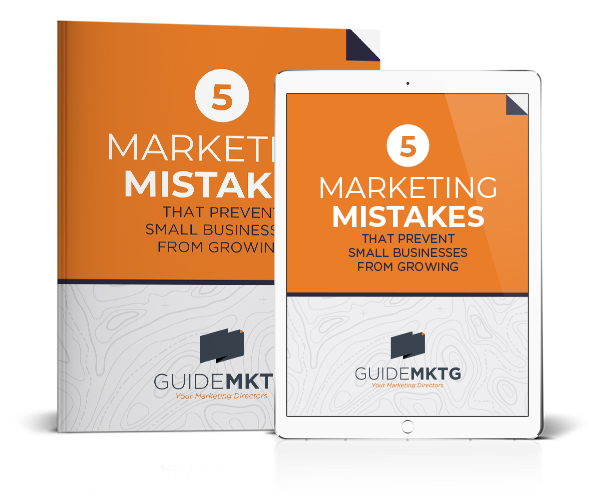Have you been led to believe that social media marketing is an essential part of running a small business? What if I told you that wasn’t 100% true?
Social media can be a great tool to connect with your target audience and promote your products or services if you know how to leverage it well. Unfortunately, for many small business owners, social media turns into an overwhelming time suck that gets dismal results. Instead, use these 7 important social media tips for small business owners to help you reap the benefits of social media without falling prey to the pitfalls.
7 Social Media Marketing Tips
To make the most of your social media efforts, use these seven tips to form a solid social media strategy that helps you reach your business goals.
Tip #1: Think of Social Media as a Supplement
Many small business owners rely solely on social media to bring in new leads and boost sales. Unfortunately, when you make social media the bulk of your marketing strategy, you have very little control over the results.
Social media isn’t the most dependable marketing platform because:
- You are relying on unpredictable, ever-changing algorithms. You will never be 100% in control of who sees your posts or when they see them.
- You don’t own your followers. If your account gets hacked or the social media platforms you use go down, you lose contact with all the potential clients you worked so hard to gain.
Instead of relying solely on social media marketing to grow your business, we recommend using it as a supplemental tool to bring people onto your email list. In fact, until you have a reliable sales funnel set up, you probably don’t even need to bother with social media platforms.
The sales funnel we use relies on email marketing to build relationships and make sales. Email marketing is a more secure and predictable marketing method for several reasons:
Ultimately, email gives you much more control over the results than social media content.
So, keep social media in its place. Use it to do audience research, build brand awareness, run advertising campaigns, and generate leads but make sure that your business would be able to keep running smoothly if social media were to disappear tomorrow.
Tip #2: Be Social
Another trap small businesses often fall into is using their social media profile to advertise, promote, and persuade without ever posting high-quality content. They are 100% focused on selling instead of connecting.
The entire point of social media though is to interact and be social. To achieve social media success, interacting with your target audience has to be an integral part of your social media marketing strategy.
To create social media content that generates interaction and builds relationships, create high-quality content that your target audience will find useful. To keep your audience engaged, ask questions that generate interaction and then take the time to reply to comments and respond to direct messages in a timely manner.
Claire Diaz Ortiz, the author of Social Media Success for Every Brand, compares social media strategy to a bank account. She says that each time you sell, promote, or ask followers to do something you are withdrawing from the bank account. Helpful content and genuine interactions are like deposits into the social media bank account. You want to always give more than you take so that your social media bank account doesn’t fall into the red.
If you use social media to give, connect, and interact, people will want to engage with your brand on a deeper level. Your high-quality social media content will compel them to join your email list and eventually buy your products or services.
Tip #3: Be Consistent
To make the most of your social media presence, develop a consistent brand tone and look across all social media platforms. This helps people begin to recognize your posts and associate the content with your brand. Your brand’s tone, colors, and even fonts should show your company’s unique personality that sets you apart from the competition.
In addition to showing up in the same way each time you post on social media, you also want to show up on social media consistently. Create a content strategy that you can stick with, whether that is posting once a day or once a week. If you aren’t sure how often you should post, use these recommendations for each platform as a guide.
Keep in mind that you don’t have to be on all the social media platforms. In fact, as a small business owner, you shouldn’t be. There isn’t enough time to effectively manage multiple platforms. Limit yourself to 1-2 platforms to start.
Do some research to find out where your target market hangs out online and focus your time and energy on the social channels where you are most likely to find new customers.
Tip #4: Use Social Media Marketing Tools
Showing up consistently, interacting with people, and posting helpful content is a lot of work. Instead of trying to remember when to post each day, use scheduling tools to automate your social media posts.
Even within most of the free tools you can create a social media content calendar to organize what content you post where. Instead of having to log into different platforms and manually click publish, you can log in to just one platform and schedule all of your posts at once.
There are hundreds of social media automation tools out there. With a little research, you should be able to find one that fits your needs and your budget.
Tip #5: Recycle Content
One of the pros and cons of social media is that most of your followers won’t see your posts. That means you can recycle content time and time again and most people won’t notice.
If you write a blog post, you can easily get 5+ social media posts out of that same post. If a post performs well, you can repost it a few months, or even years later to keep the community engagement going.
Many small businesses also use the same message or easily customizable message templates to respond quickly to direct messages and comments.
Ultimately, social media success isn’t dependent on consistently creating new content, you just have to consistently post good content. That content can be old content you want to draw attention to, sharing helpful content you find that someone else created (giving them the credit of course), or compelling questions that spark engagement. There is no need to reinvent the wheel, you just have to keep it moving.
Tip #6: Have a Time Limit
As a small business owner, you already have a lot to do. Most days, you probably don’t have free time to spend on social media. Since time is money, set a specific time limit for your daily social media activity, and stick to it.
Allocate a specific amount of time each day to create engaging content, respond to comments, and engage with your followers. Once that time is up, close the social media apps and move on.
If you don’t get to everything on your social media to-do list, no worries. Remember, social media is a supplement, not your whole marketing strategy. What you don’t get to today you can finish up tomorrow.
Tip #7: Look at the Numbers that Matter
Although you should track social media metrics, you want to focus on the right numbers. Remember, your entire goal for social media is to get potential customers onto your email list. So, the number of followers you have isn’t nearly as important as the amount of engagement your social media posts get and how often social media posts are drawing people onto your email list.
Don’t be afraid to experiment with new types of posts to figure out what works best for your audience. Repeat what works instead of falling for the new social media trends that come along.
Social media is constantly changing but your main goal for social media shouldn’t. Each post should help your target audience. When you log on to social media with that mentality, you will be able to use your social media profiles to build trusting relationships that eventually lead to sales.
Need Help With Your Social Media Marketing Strategy?
If you are tired of social media taking up all your time without contributing to your bottom line, schedule a call with Guide MKTG. We can help you clarify your brand’s story so that you can show up consistently on and offline. We will also help you set up a sales funnel that works whether you post on social media or not.
When used correctly, social media can be a tremendous asset for small business owners. By using social media as a small piece of your overall marketing strategy, focusing on growing your email list and your revenue, and creating great content that helps your target audience, you’ll be able to use social media to grow your business instead of just your to-do list.





